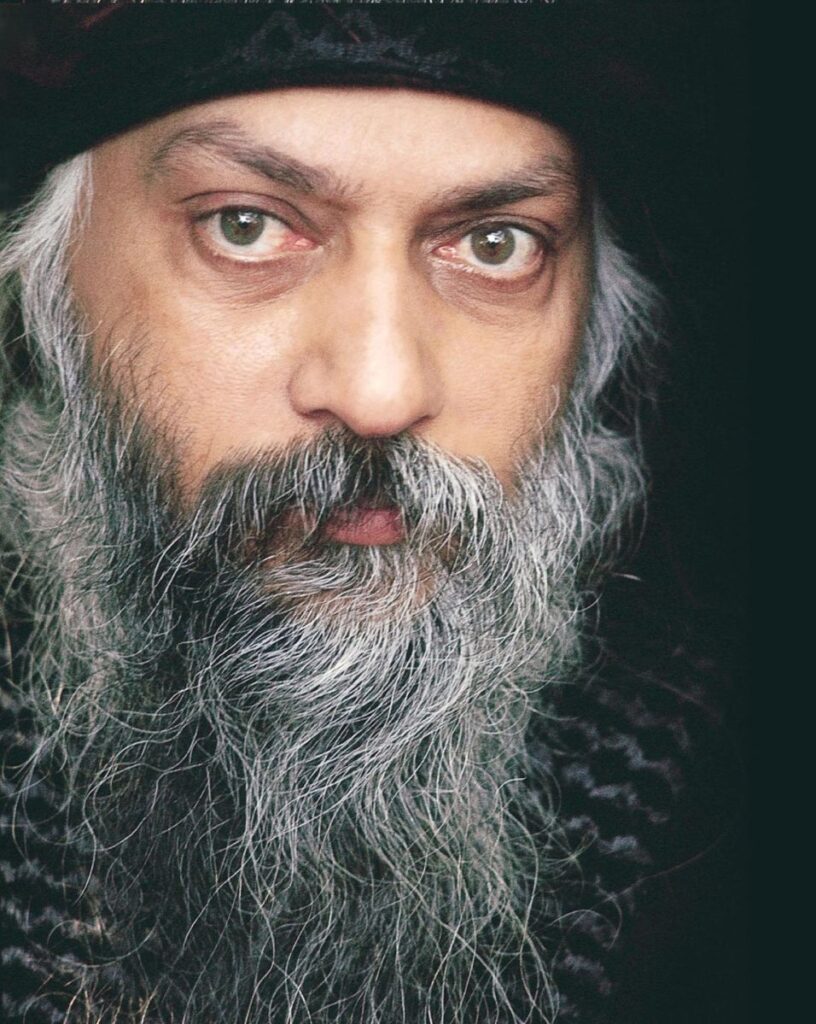
It happened about a very famous Zen woman, her name was Rengetsu…. Very few women have attained to the Zen ultimate. This one is one of those rare women.
She was on a pilgrimage, and she came to a village at sunset and begged for lodging for the night, but the villagers slammed their doors. They were against Zen. Zen is so revolutionary, so utterly rebellious, that it is very difficult to accept it. By accepting it you are going to be transformed; by accepting it you will be passing through a fire, you will never be the same again.
So traditional people have always been against all that it true in religion. Tradition is all that is untrue in religion. So those must have been traditional Buddhists in the town, and they didn’t allow this woman to stay in the town; they threw her out.
It was a cold night, and the old woman with no lodging… and hungry. She had to make a cherry tree in the fields her shelter. It was really cold, and she could not sleep well. And it was dangerous too — wild animals and all.
At midnight she awoke — because of too much cold — and saw, as it were, in the spring night sky, the fully opened cherry blossoms laughing to the misty moon. Overcome with the beauty, she got up and made a reverence in the direction of the village….
This is what TATHATA IS.
Overcome with the beauty, she got up and made a reverence in the direction of the village:
‘Through their kindness in refusing me lodging I found myself beneath the blossoms on the night of this misty moon.’
She feels grateful. With great gratitude she thanks those people who refused her lodging, otherwise she would be sleeping under an ordinary roof, and she would have missed this blessing — these cherry blossoms, and this whispering with the misty moon, and this silence of the night, this utter silence of the night. She is not angry, she accepts it. Not only accepts it, welcomes it — she feels grateful.
A man becomes a Buddha the moment he accepts all that life brings with gratitude. He is on the Way, he is on Tao; and he IS becoming meditative.
Osho in Zen – the Path of Paradox
Tathata: The Buddhist concept of the ultimate nature of all things, as expressed in phenomena but inexpressible in language.
Image: A postage stamp depicting cherry blossoms issued by Japan in 2015 to commemorate the UN World Conference on Disaster Risk Reduction. Courtesy https://www.stampsoftheworld.co.uk/wiki/

Acharya Rajneesh (1931-1990), known later as Osho, was an Indian godman, philosopher, mystic and founder of the Rajneesh movement. He was viewed as a controversial religious leader during his life. He rejected institutional religions, insisting that spiritual experience could not be organised into any one system of religious dogma. He advocated meditation and taught a unique form called dynamic meditation. Rejecting traditional ascetic practices, he asked his followers to live fully in the world but without attachment to it. Pic courtesy: https://www.sannyas.wiki
